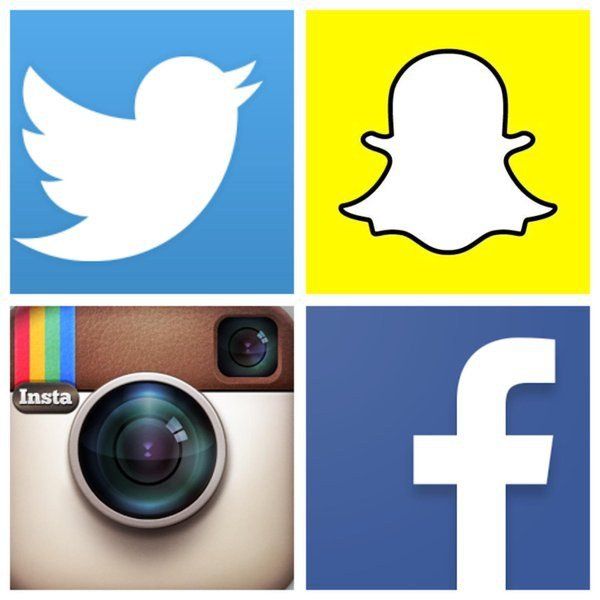For centuries, leaders have consistently sought mediums of communication that act as direct pipelines of information to awaiting masses. During the Protestant Revolution in Germany, Martin Luther used the newly invented printing press to mass-produce his easy-to-read "Ninety-Five Theses"; our Founding Fathers disseminated their revolutionary ruckus through short, but powerful, pamphlets; and today, we tweet and share our groundbreaking ideas with our communities via social media platforms. Now, more than ever, our voting populace demands the instant gratification of packed headlines and quick figures from both media sources and politicians. This trend has cultivated a culture of zingy tweets and pejorative political narratives from news sources that are not explicitly written to inform readers, but rather to satisfy their need to absorb a breadth of worldly news during their few minutes of avoiding eye contact with others on the train or while waiting for a barista to sling them a coffee with a creative misspelling of their name. Our recently developed culture of digital news and crowd-sourcing political support has nurtured a new arena for political discourse, making the race for the White House in 2016 the most publically accessible election in our nation’s history.
President Obama’s successes in 2008 and 2012 have been, without fail, attributed to his campaign team’s focus on voter engagement on social media stages. Political analysts have congruently accredited certain candidates’ lack of connection with young voters to the fact that they have formerly failed to recognize the power of Internet-based, feedback-driven sharing platforms. The Kennedy-Nixon debate brought the presidential election’s bully pulpit to television in 1960, allowing voters to stream political happenings directly into their living rooms. From that moment on, elections have been about channeling engagement through media campaigns, rather than pulling at voter heartstrings in intimate rallies across the country. This shift has ushered in a new era of politics, in which voters are presented with a self-serving, double-edged sword.
Through participating in meaningful dialogue on social media, we are genuinely able to shape the hot-button issues of each election by flooding platforms with concerns about issues like race relations, health care, or gun control. Meanwhile, social media also gives politicians the content they need to potentially project our shared views in disingenuous presidential ploys. Social media campaigns have the possibility to truly become a socially constructed echo chamber, where whatever we tweet becomes the bread and butter of candidates’ campaigns.
The echo chamber theory also allows us to facilitate dialogue between candidates and political parties. To use a timely example, our publicized responses to certain pertinent issues framed the highly anticipated GOP Presidential Debate on Fox News this past Thursday, August 6. Fox News anchor Megyn Kelly was the dominant moderator in this heated panel of the top 10 Republican candidates hoping to attain the Presidency in 2016, and she constantly referred to both polls and social media standing when referring to each candidate. A new, yet obviously juxtaposed, section of the debate encompassed pre-vetted citizens asking questions shared via social media platforms, while Democratic candidate poll leaders Hillary Clinton and Bernie Sanders tweeted to express their disdain for statements heard during the debate.
Our new era of political programming differs so dramatically from the aforementioned debate of the past because it exists on multiple streaming platforms, with both voters and media sources commenting on front-runners and gaffes long before the debate ends. We don’t have to wait for the morning paper or late-night television programs to inform us on the highlights of the debates, we can read and interact with other’s reactions seconds after a statement is given or an argument ensues.
This flourishing and reactionary form of knee-jerk journalism and tweets contributes to the peaking resonance of the social media echo chamber, as opposing candidates can tap directly into the opinions of the populace and use live reactions to tailor their own campaign messages. Being able to directly interact with voters through their discussions online is a neoteric, innovative, and dramatic change to campaigning in the modern era. As voting citizens and members of the online community, we can hold candidates accountable for the messages they advertise. We should feel proud that our tweets and Facebook posts are being studied and analyzed by the foremost political analysts of our time, but we also must acknowledge the power our dialogue and interactions have on the course of the 2016 election.
Social media allows us to share opinions freely, and we must recognize that this outlet creates an echo representing direct support for that idea in the mind of any candidate’s team. If an idea is retweeted at a high level, it is extremely probable that the sourced candidate will make it a dominant element of their campaign. We must use our social media agency to demonstrate the ideologies and policies we truly believe in. Consciously make history with your social media participation instead of becoming a member of the proverbial flock. We have the power to take back control of the election’s bully pulpit; we just have to use the tools we constantly use to our advantage.





















